A boy from an ordinary peasant family, who wrote poems about his native village, he grew up into an outstanding author of famous books. Bagrat Shinkuba became truly famous and was friends with celebrities, but his word was and remains clear to everyone - as a word of a truly national poet.
Arifa Kapba
Bagrat Shinkuba was born on May 12, 1917 in the large Abkhaz village of Chlou, in the settlement of Laganiahu, which he would later glorify in his beautiful poems. It is known that the grandfather of the poet Zhazha was one of those who in the 19th century, during the mass evictions of Abkhaz from their native lands to the Ottoman Empire, did not become an immigrant. He managed to stay with his family in his homeland, and then helped to ensure that many of his relatives returned to Abkhazia from a foreign land.
Childhood and youth
As a child, the future writer was secretly baptized: he was baptized by his grandmother’s brother from his father’s side, the priest Bahua Kakalia (in Soviet times, many church activities were conducted secretly from the authorities - ed.).
Bagrat studied first at the Chlou school, then at the seven-year school in the village of Dzhgerda, and at the age of 14 he entered the Sukhum Pedagogical College, where his older sister was already studying: parents felt that it would be easier for children. In the college, according to the grandson of the poet Levan Mikaa, Shinkuba had a perfect pitch and it was revealed at the very first music lesson.
“He was even prophesied about the future of the great violinist, they gave him a violin there, - says Mikaa. - But in the hostel where he lived, the boys broke his violin, and he was shy, did not go to the violin lessons after that. My grandfather always remembered this incident and laughed, he said, if they didn’t break his violin, he would be a great violinist.”
Bagrat Shinkuba did not become a musician, but he retained his love for music for the rest of his life, he himself played a folk musical instrument - an apyarch (an old national two-stringed bow instrument - ed.). It is from here that the special melody of his poetic form originates, the grandson believes. In the house of Bagrat Vasilievich there was always a record player, he listened to both folk and classical music. He especially loved opera, and there is nothing surprising in this, because, according to Mikaa, “the classic of Abkhaz traditional life and consciousness is the very opera”. The grandson also recalls that Bagrat Vasilyevich caught the successes of then rising star of the opera stage Khibla Gerzmava, immensely appreciated her talent, met with her and even presented several books.
A fateful moment in the life of young Bagrat is connected with music in an amazing way. Once, being in Sukhum, composer Ivan Lakrba, brother of the writer Mikhail Lakrba, played a song based on the poems of the young Bagrat Shinkuba “Lullaby of Mahajirs” with an acamamur (four-stringed plucked instrument - ed.) to the vice-president of the Academy of Sciences of Georgia Simon Nikolayevich Dzhanashiya. The academic really liked the song, and he wrote on a sheet with the lyrics: “The song is good, I strongly recommend it to be performed”.
“In fact, it was a carte blanche for a young poet from one of the most influential people in the Soviet Union,” says Levan Mikaa, “and the fact that Dzhanashiya took these verses so well opened the way for his grandfather: from that moment on, he was under the auspices of Simon Nikolayevich Dzhanashiya.
After that, Bagrat Shinkuba, among some other talented representatives of the young Abkhaz intelligentsia, went to graduate school at the Tbilisi Linguistic Institute. When the Great Patriotic War began, almost all Shinkuba’s peers were called to the front. But here, too, Simon Dzhanashiya intervened, who was convinced: talented graduate students should be provided with a so-called “reservation”, they should not be sent to the front. This affected both Bagrat Shinkuba and Shalva Inal-ipa (famous Abkhaz historian, ethnographer and literary critic - ed.), and Georgy Dzidzaria (Soviet state and political figure, Abkhaz historian - Caucasus researcher - ed.).
But Bagrat himself still doubted, Levan Mikaa recalls. In 1940, right on the eve of the war, he accidentally stumbled upon the text of the “Charter of the Recruit”, which says that the only son of elderly parents is not subject to appeal, and he was not drafted into the ranks of the “Red Army”. And then there was the graduate school and he morally calmed down: it was just his case. After graduating from the postgraduate course, Bagrat Shinkuba returns to his homeland and starts working at the Abkhaz Institute of Language, Literature and History. In 1945 he defended his thesis on the Abkhaz word-formation, making a number of interesting observations and discoveries. So, for example, analyzing the etymology of the word “tear” (Abk. “алаӷырӡ”), he derives it from the phrase “an eye filled with water” (Abk. “ала иаӷроуаӡы”).
“First songs”
The first poems of Shinkuba were published in 1935: the young poet is only 18 years old, but he has been writing for years. He writes himself and translates the great classics. According to the doctor of philological sciences, Valentin Kogonia, Shinkuba did not take into account the well-known literary thesis that poetic works are not amenable to translation from one language to another. For example, a seventeen-year-old young man, he delicately translated Pushkin's “Flower” into the Abkhaz language. Then he translated such luminaries of world poetry as Goethe, Heine, Byron and others (from an interview with the Abaza TV channel - ed.).
In the first collection of poems, published in 1938 under the title “First Songs”, the bright, original talent of the new poet becomes apparent. Most of Shinkuba’s poems in this book are written by him at the age of thirteen to twenty years. And today it is the best poetic works of Abkhaz literature. Among them are “Dream”, “White Blouse”, “Shyardaamta”, “Lullaby of Mahajirs”.
According to the writer Daur Nichkebia, Bagrat Shinkuba had an outstanding poetic talent: “In his work he most fully reflected the beauty, sonority, melody, subtle nuance of the Abkhaz language. In his poems, the soul of Abkhazia, the soul of our people, his, Bagrat Shinkuba’s great soul “sang out”.
Shinkuba’s literary talent grew brighter over time and acquired more and more new facets. In addition to his poems, ballads and poems appear in his work, and his novel in verses “Song of the Rock” dedicated to the national hero Khajarat Kyakhba became one of the most beloved by Abkhaz readers, deserving the highest reviews from critics. It was this work that formed the basis of the film “The White Tower”, released at the Dovzhenko Film Studio in 1975.
And to whom that rock was the cradle,
when the storm shook it
who closed eyelashes to the buzz of waterfalls
and dipped palms in the dawn, -
he was born for big things. He is a rock.
And we praise the mother of the rock for this.
(An excerpt from the novel “Song of the Rock”)
Main novel
Prose, unlike poetry, appeared in his work quite late, in the sixties. One of the significant prose works of the writer has become largely autobiographical novel “Dissected Stone”. The action takes place in the first two decades of the twentieth century, the story is on behalf of a young man named Lagan. The writer describes a familiar time, familiar places, but at the same time reflects on the past and the future of his beloved homeland.
But the main prose work of Shinkuba was a historical-philosophical novel in three parts, “The Last of the Departed”. Translated into many languages of the world (about forty languages - ed.), it was first published in the magazine “Alashara” in 1974.
The main character of the novel, Zolak, is “The Last of the Departed” - the last representative of the Ubykh people who vanished from the face of the earth. In his novel Shinkuba describes the catastrophe of an entire people, raises the most important questions of the history of the whole Caucasus.
“The farther we went from the coast, the sharper were the outlines of our mountains on the horizon. I'm used to them. I grew up on their chest. I still remember their every prong as I saw it in those last minutes,” - these lines from the novel are clear to absolutely everyone who was separated from their native land. A well-known fact: after reading this novel, many representatives of the Abkhaz Diaspora first decided to visit their historic homeland. The novel united not only generations, but also nations, once again reminding them of their brotherhood and common historical fate.
According to the memoirs of the writer's son, Benur Shinkuba, there were several reasons that prompted his father to write this novel: “First, these are the events that took place in the thirties in Abkhazia, in fact, the genocide of the Abkhaz people, when the best representatives of the Abkhaz intelligentsia were annihilated, Abkhaz schools were closed, it was impossible to speak the Abkhaz language, compulsory education in Georgian was introduced in the schools, and the Abkhaz lands became massively populated by Georgians. And secondly, it is a tragedy of small nations - Chechens, Ingushes, Kabardians, Adygs, Balkarians, who were deprived of the right to live in their native land during the Caucasian War” (from the interview to the Abaza TV channel - ed.).
In 2017, in honor of the centenary of the birth of Bagrat Shinkuba, the novel “The Last of the Departed” was read in many languages of the world in different geographical points of the world from the first lines to the last, and all this fit into the television project of the AGTRK “The Last of the Departed. Readings.”
“Letter of the Three”
Poetry and literature, being the main vector of life of Shinkuba, were, of course, not the only areas in which he showed his talent. His whole life is serving the interests of his native Abkhazia. His personality was of great importance both in public and political life of the republic.
Bagrat Vasilyevich Shinkuba was one of the authors of the famous “Letter of the Three”, sent in 1947 to the top leadership of the Soviet Union. Together with scientists Georgy Dzidzaria and Konstantin Shakryl (linguist, prominent figure in Abkhaz culture - ed.) they wrote a letter in which they wrote about facts that testified to the oppression of the Abkhaz people, about the “Georgianization” of Abkhazia, about the impossibility of normal development of the Abkhaz ethnos in the situation.
Writing such a letter was a desperate step, and those who wrote it understood this very well. But Shinkuba, Dzidzaria and Shakryl could not help but tell that the Abkhaz are oppressed in their own republic, that they are not allowed to study in their native language, that the Abkhaz are not allowed to occupy any high positions.
This letter caused the most severe reaction from leadership of the Abkhaz Autonomous Republic and the Central Committee of the Communist Party of Georgia of that time, and its authors were subjected to merciless criticism, they were subjected to strong psychological pressure.
“They became outcasts, people were afraid to communicate with them, acquaintances who saw them on the street, tried to turn off somewhere, just to not greet them, - recalls the grandson of the poet Levan Mikaa. - It is good that this letter was written not in the thirties, otherwise it is not known how it would all end (in the 30s mass repressions took place in the USSR, the victims of which were tens of thousands of innocent people - ed.). Much later, Bagrat Vasilievich still managed to see the case brought on them because of the “letter of the three”: if it had been completed, everything would have ended with execution”.
In a public office
In 1954, Bagrat Vasilyevich Shinkuba headed the Writers' Union of Abkhazia, and in 1958 became the chairman of the presidium of the Supreme Council of the Abkhaz ASSR and remained in that post until 1979, that is, for almost twenty years he was one of the leaders of the republic. It was under him that the most important reform of the education system took place in Abkhazia: for the first time in an autonomous Soviet republic, schoolchildren received the right to learn in their native language up to the 4th grade.
“A huge layer of work was carried out, after all, it was necessary to translate subjects into Abkhaz language, create textbooks on it, test them, it was all quite difficult,” Levan Mikaa says.
Taking up an important public office and meeting with high-ranking Soviet scientists, educators, Shinkuba personally “begged” for the postgraduate seats for about one hundred and fifty representatives of Abkhaz youth in the republics of the USSR.
During Soviet times, Abkhazia, as is well known, was an “All-Union health resort” and a favorite resting place for politicians, cultural and literature figures and many famous people. Bagrat Vasilievich, as the representative of the republic’s leadership, was supposed to meet high-ranking guests (they were accommodated at state dachas and taken to the sights - ed.) and do everything to make them feel as comfortable as possible. Many acquaintances of Bagrat Shinkub began exactly this way, but some, especially with creative people, flowed into strong friendship for many years.
Famous friends
In the Shinkuba’s Sukhum apartment there is a huge library where his writing desk stands untouched, on the walls there are photographs showing the bright, eventful life of the writer and poet. In these portraits, he, along with famous, mostly Soviet writers: Alexander Tvardovsky, Konstantin Simonov, Rimma Kazakova and others. All these people were met here, in the Shinkuba’s Sukhum apartment, and in his native Chlou, as the closest and dearest.
The grandson of the poet Levan Mikaa still remembers how all the children and grandchildren helped grandmother Tamara Marchan to set the tables and meet the guests. In the summer, this happened almost every day: long feasts, toasts, conversations, humor and laughter. Especially close Shinkuba became friends with Alexander Tvardovsky, who arranged a reception every summer, and then organized a vacation in Abkhazia. And Konstantin Simonov fell in love with Abkhazia so much that he bought a cottage there, which he visited during his long writers' holidays.
And then Shinkuba met with Simonov almost every evening, they talked, and when Bagrat Vasilyevich visited Moscow, he stayed with Simonov.
Friendship and warm feelings associated Bagrat Shinkuba with the poet Rimma Kazakova. “They have long-term friendships,” says the poet’s grandson. “She really loved the village of Chlou, the grandfather’s family house, where she often visited, and she, by the way, has poems about how she spent the night there and how she liked everything. She translated into Russian “The Song of the Rock”, this is one of the most significant works of Shinkuba, his novel in verse. Translated with great talent.”
All thoughts about motherland
According to the grandson of the poet, Bagrat Vasilyevich Shinkuba was a “classic Abkhaz” - in his behavior, world outlook, even in bearing and clothes. He was very fond of national cuisine: every day a hot hominy was served on the table in the house. Together with his wife, Tamara Marchan, he raised two children - a daughter, Biana, and a son, Benur. And they had five grandchildren. “If there is any understanding of what an ideal grandfather should be,” Levan Mikaa notes, “then he was him. I only have the warmest, most pleasant memories about him.”
Most of all, according to the grandson, Bagrat Shinkuba was disturbed by the fate of Abkhazia, absolutely all conversations always boiled down to this: what is going to happen to Abkhazia and its people, what will happen to the language, culture ... Whoever comes to visit, whoever he talks to the topic was homeland.
Bagrat Shinkuba was awarded the I degree Order of Honor and Glory. He is not only the people's poet of Abkhazia, but also the national writer of Kabardino-Balkaria and Adygea, the laureate of the Dmitry Gulia State Prize. The name of Bagrat Shinkuba is carried by several schools in the republic. In his native village Chlou there is a beautiful old house-museum - a place of particular significance for everyone who cherishes the memory of Bagrat Vasilyevich.
Founded in 2007, there are not many exhibits in this museum. But the picturesque location of the house with an overview of the Caucasus Mountains, a sprawling plane tree in the yard, in the shadow of which Bagrat Vasilyevich often sat with his friends, all this cannot fail to attract those who are interested in the work and fate of the poet. After all, it was here that he began to write and create.
The poet died in 2004 at the age of 86. A monument was erected on his grave in the very center of Sukhum, next to the Drama Theater. It is here that admirers of his personality and talent come. But more importantly, the place has become truly popular: “at Bagrat” a meeting place is appointed, “Bagrat” is known to children who play in the park and who have yet to learn his poems in school. In a word, exactly like a classic: “A national path will not grow to it”.
Mekanı cennet olsun.
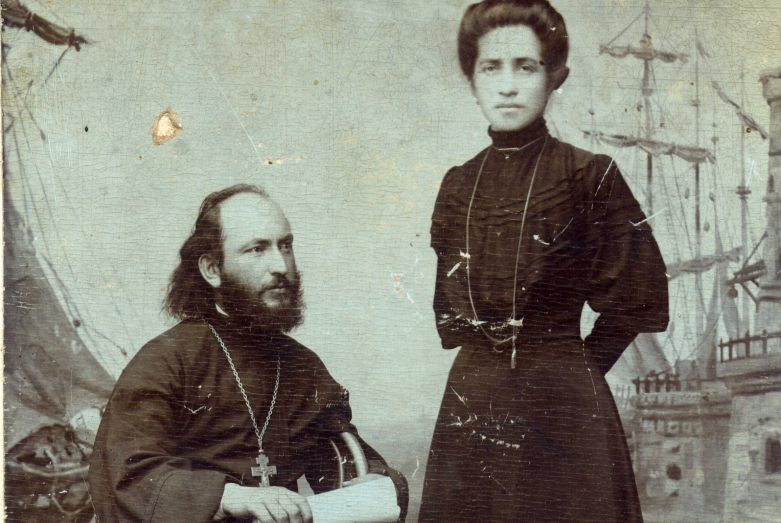
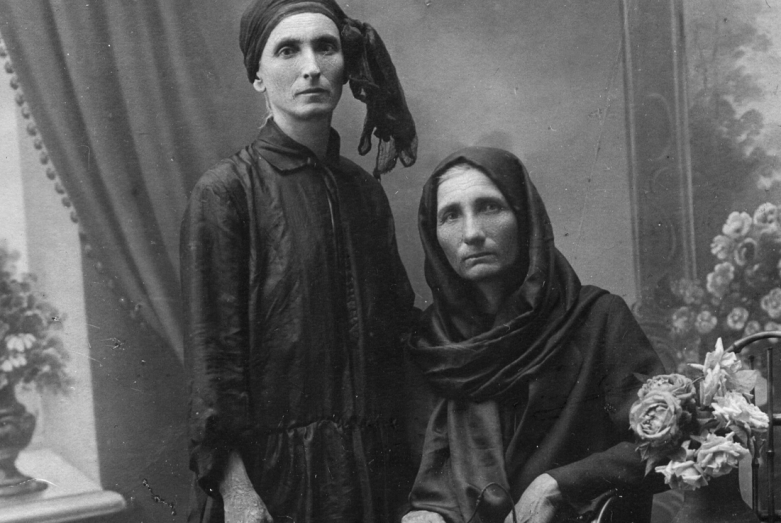
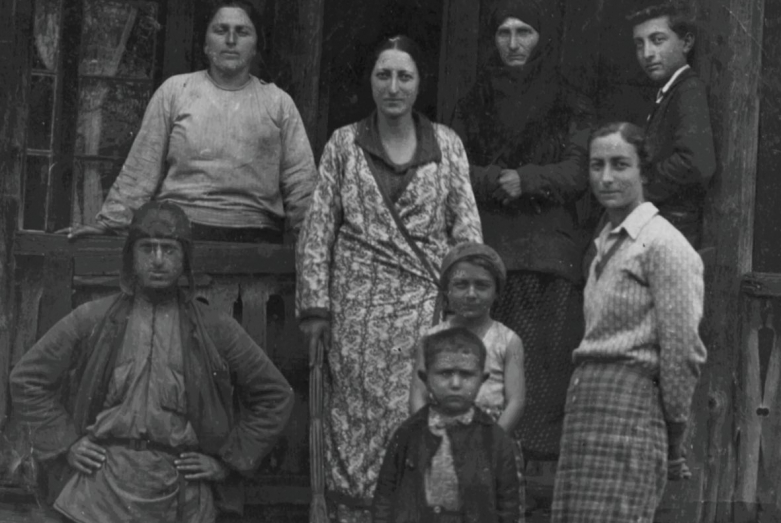
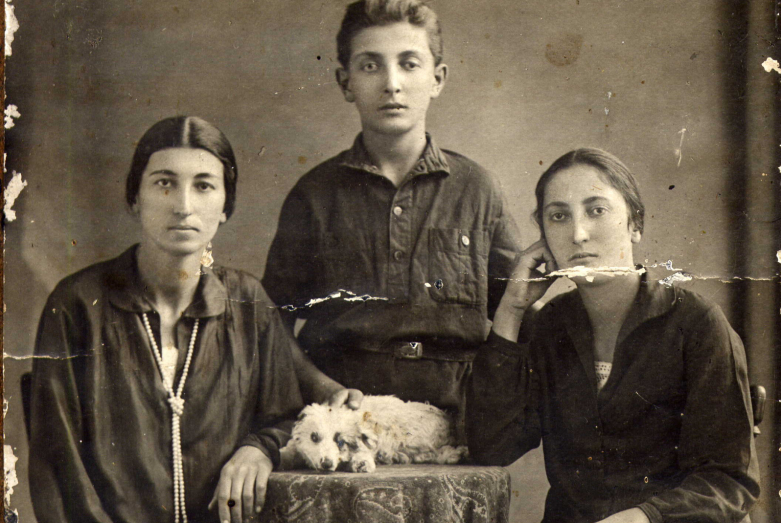
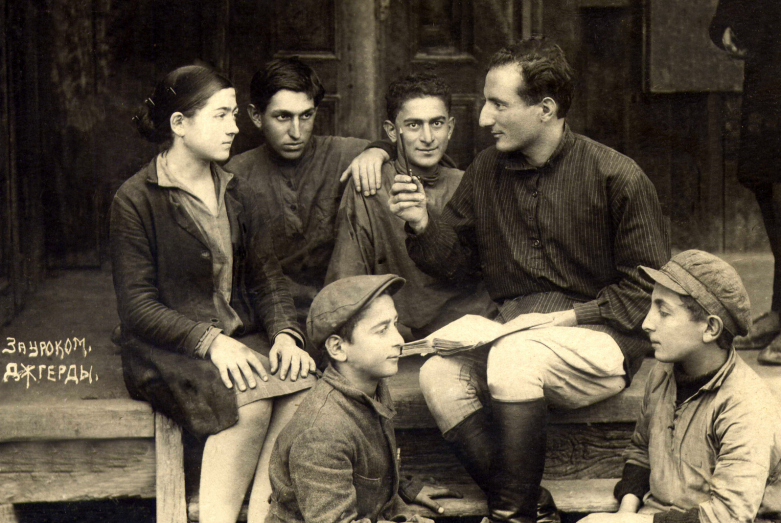
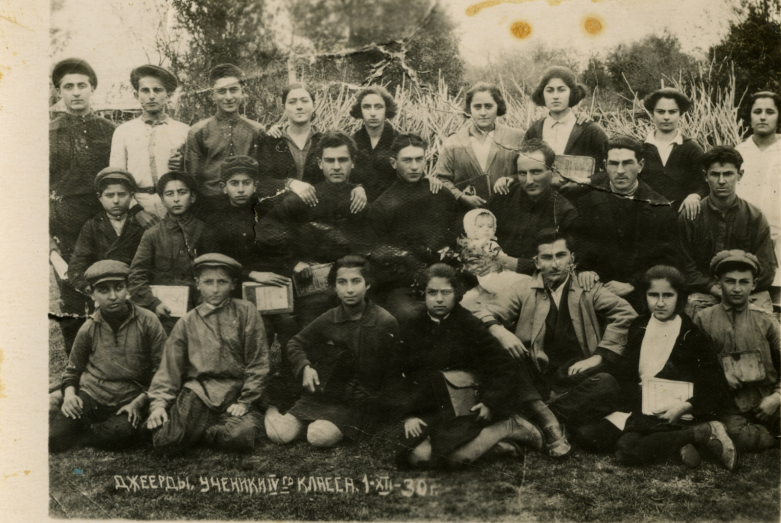
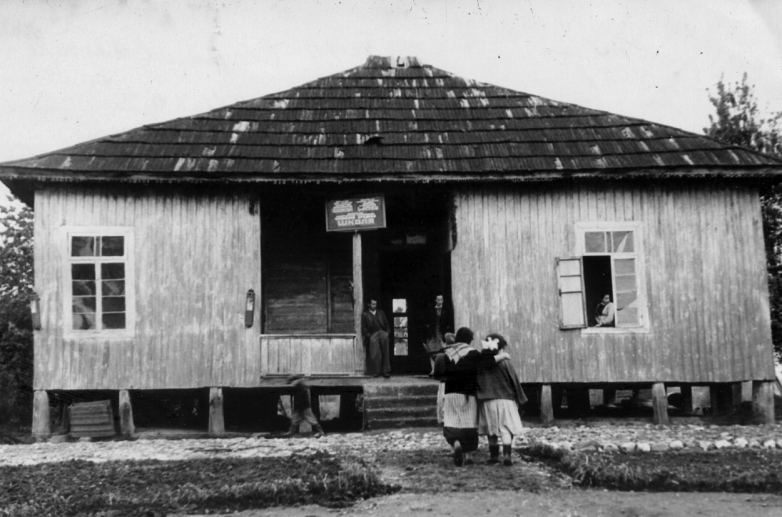
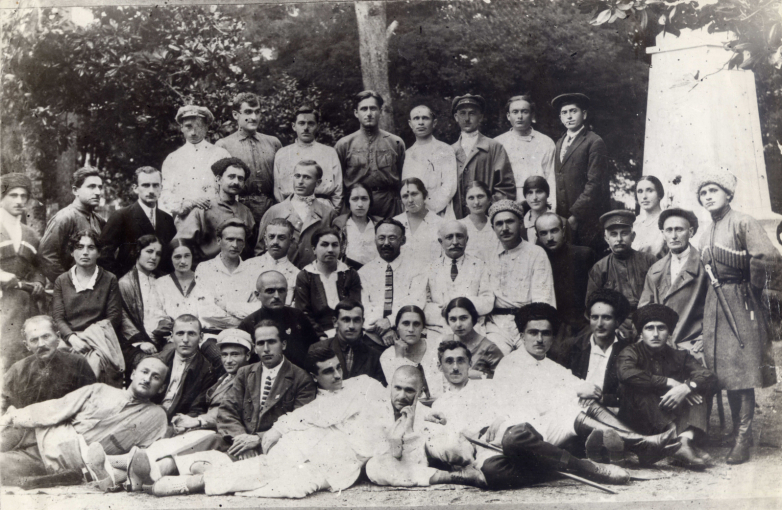
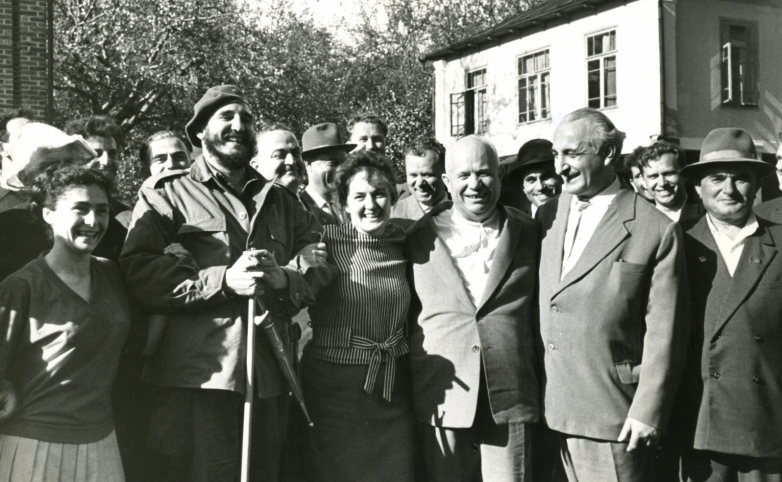
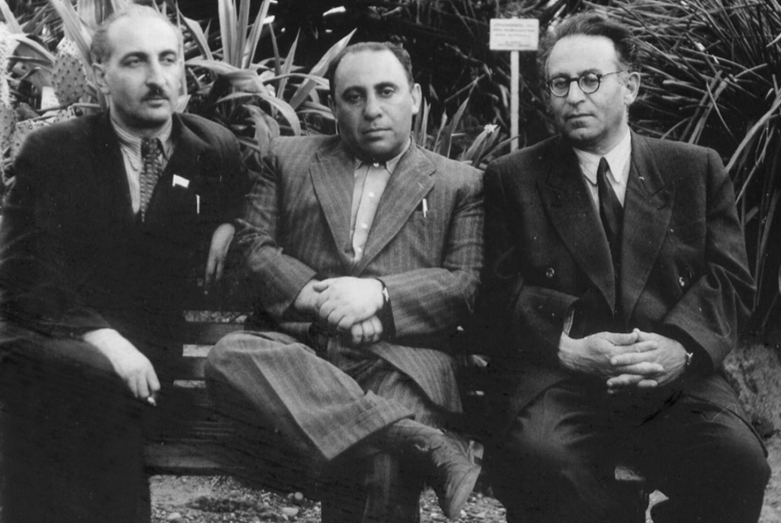
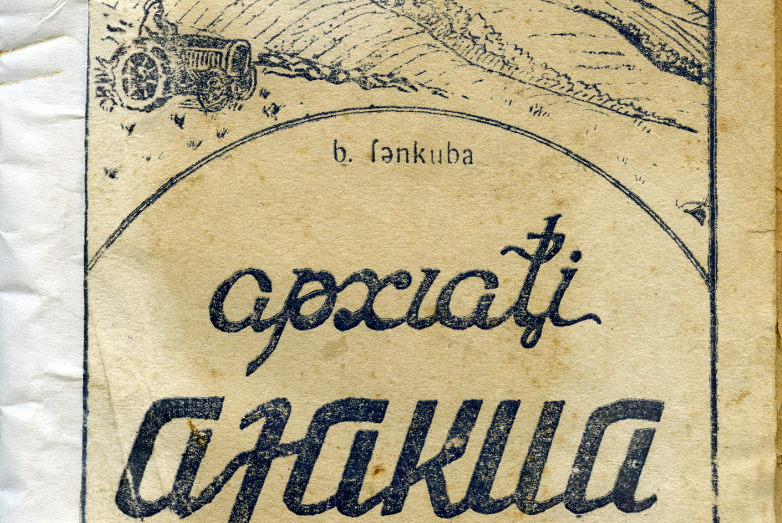
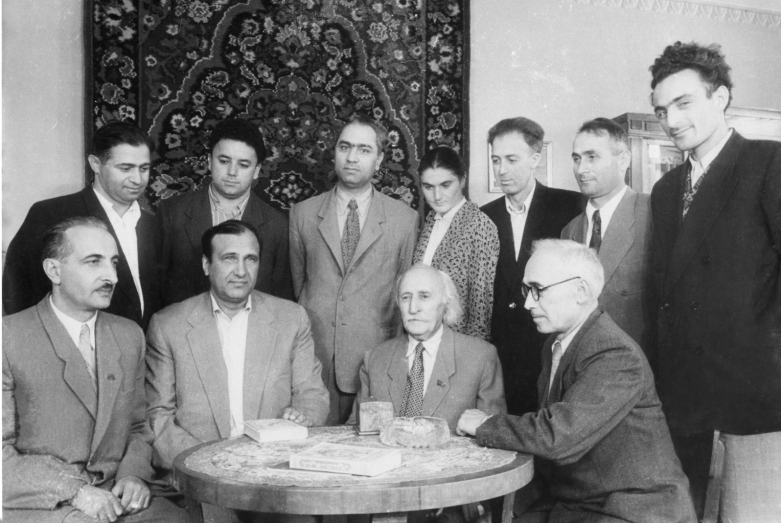
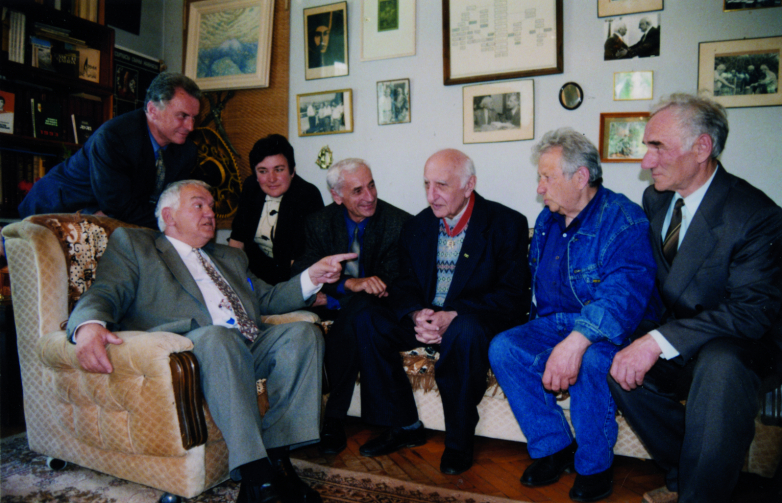
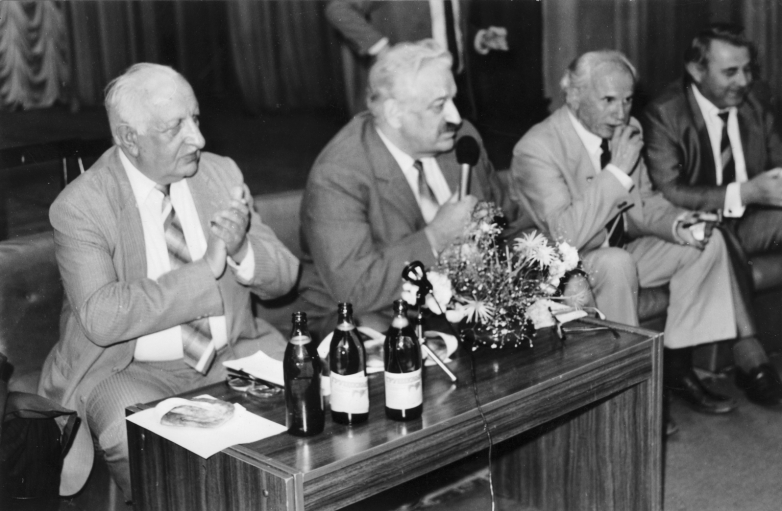
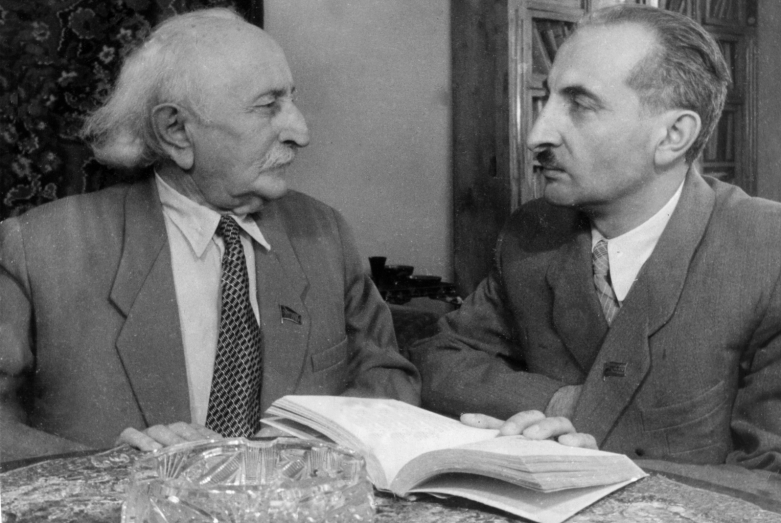
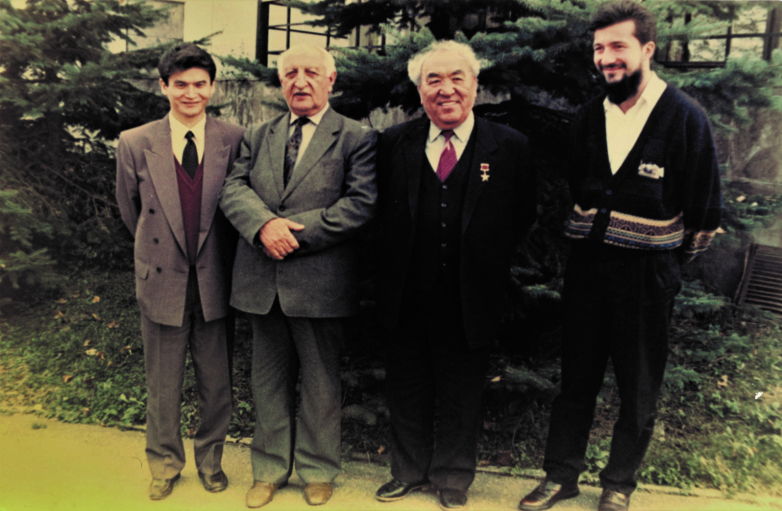
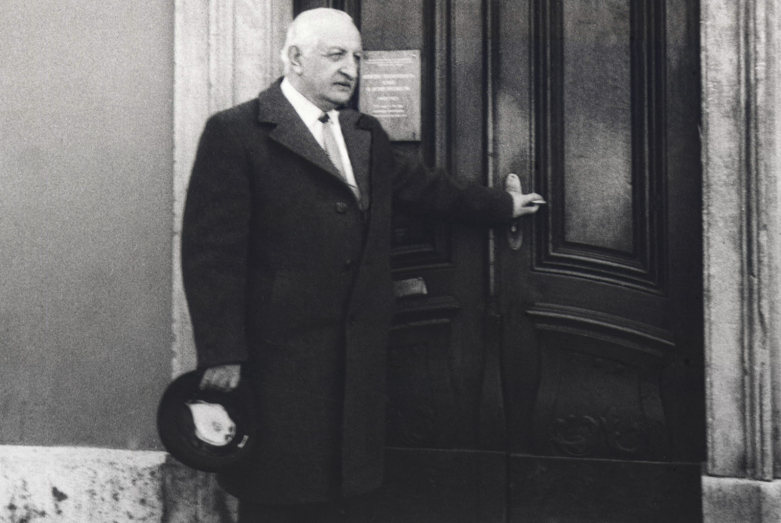
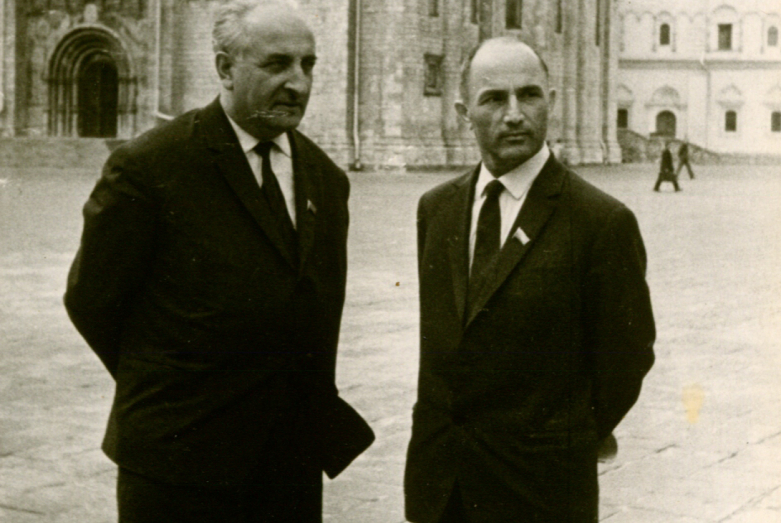
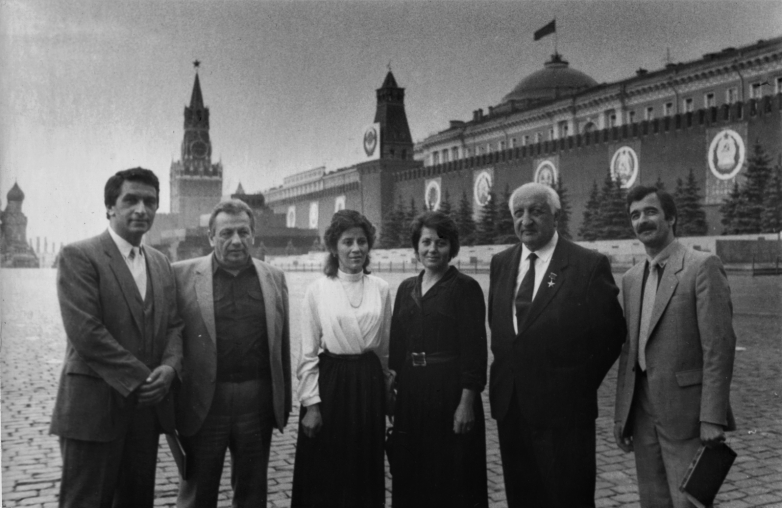
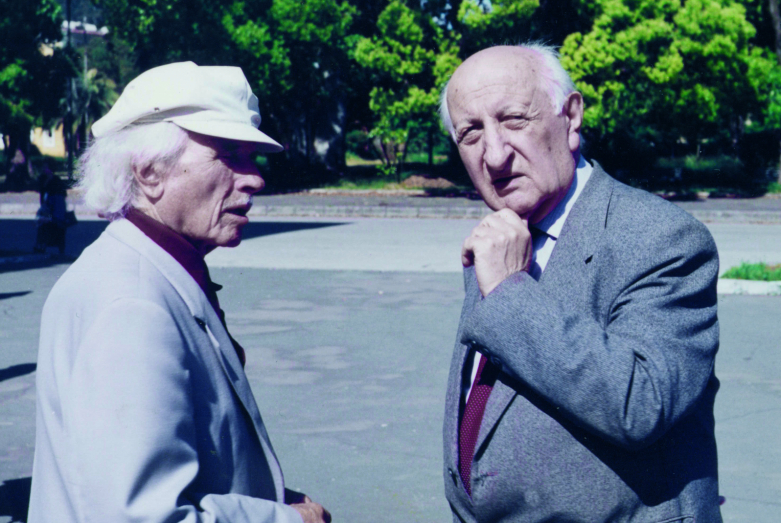
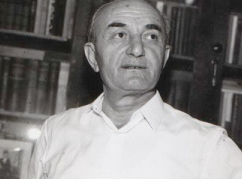
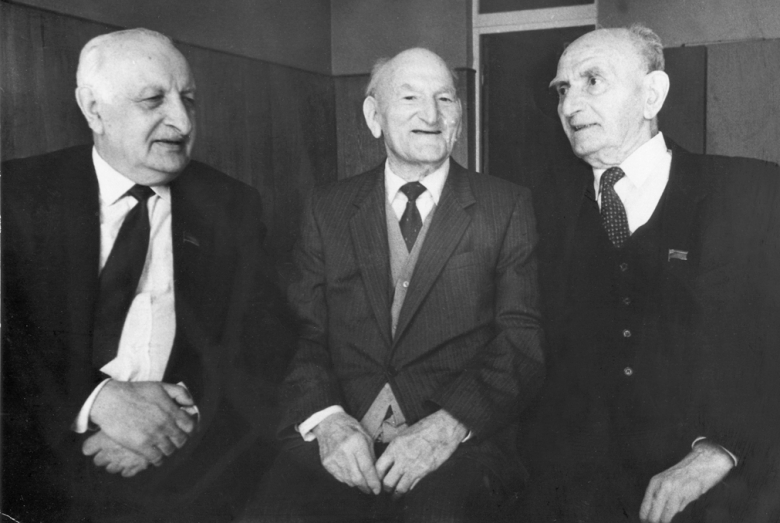
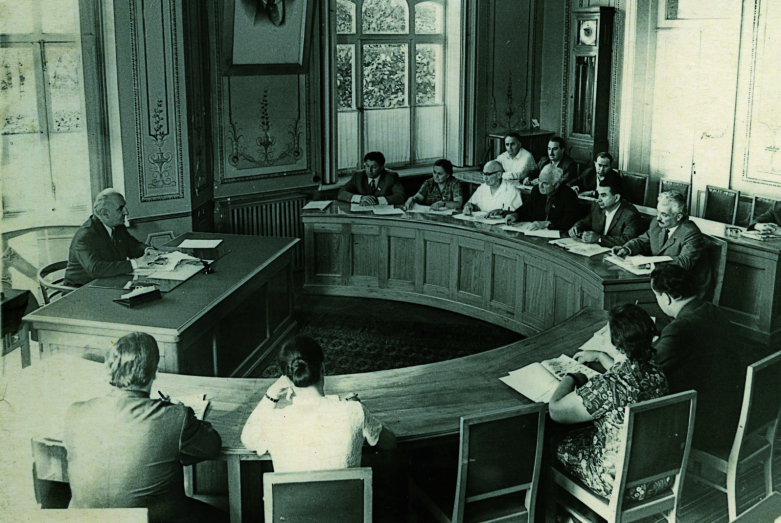
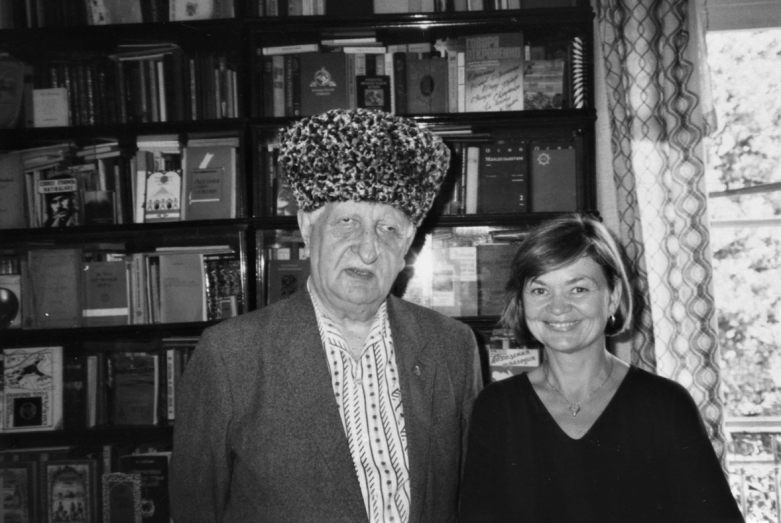
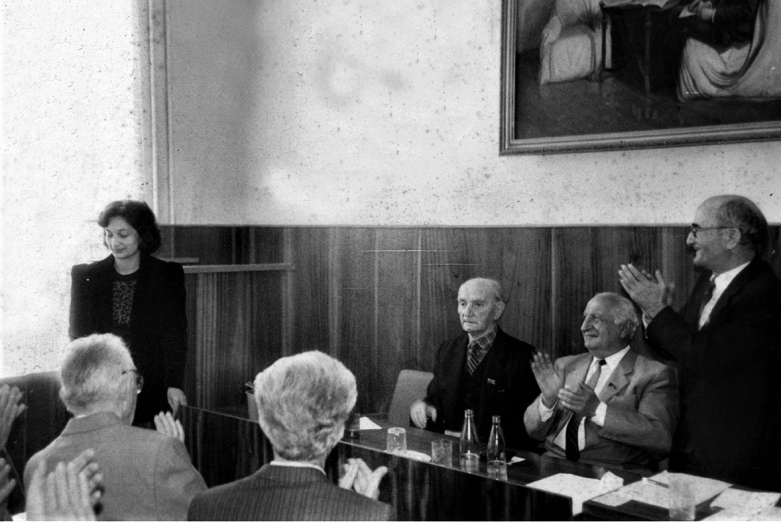
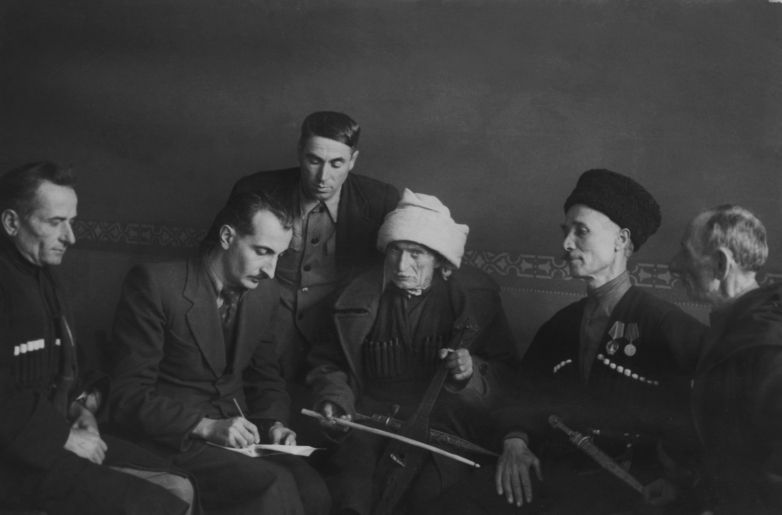
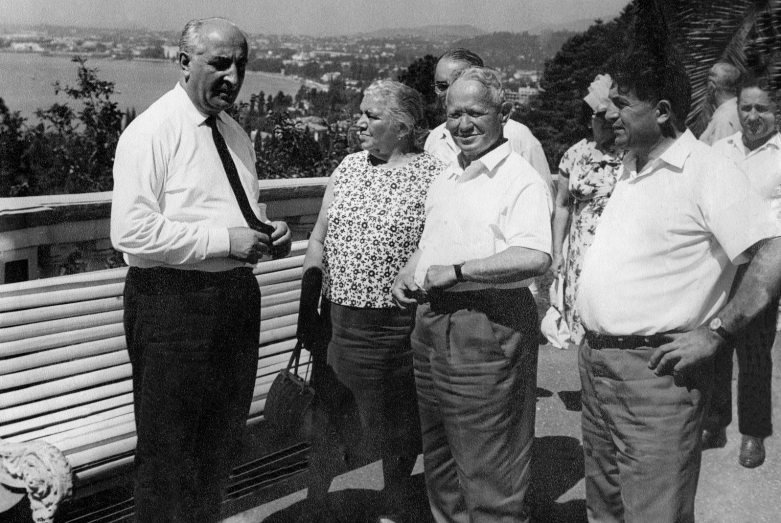
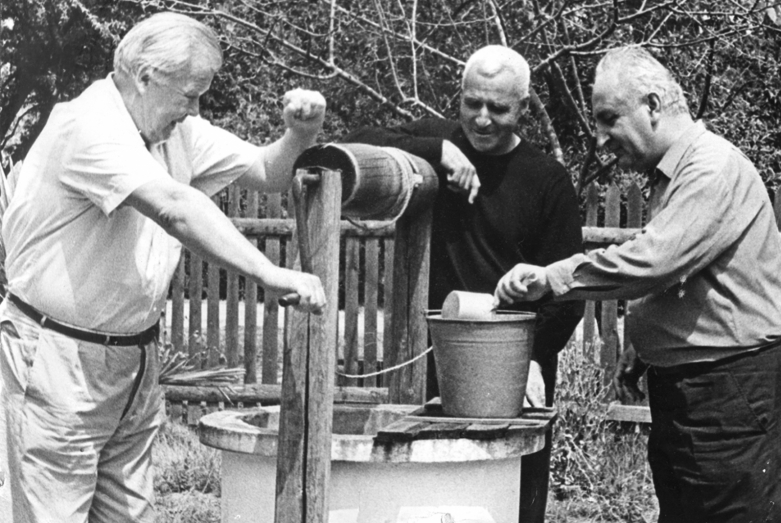
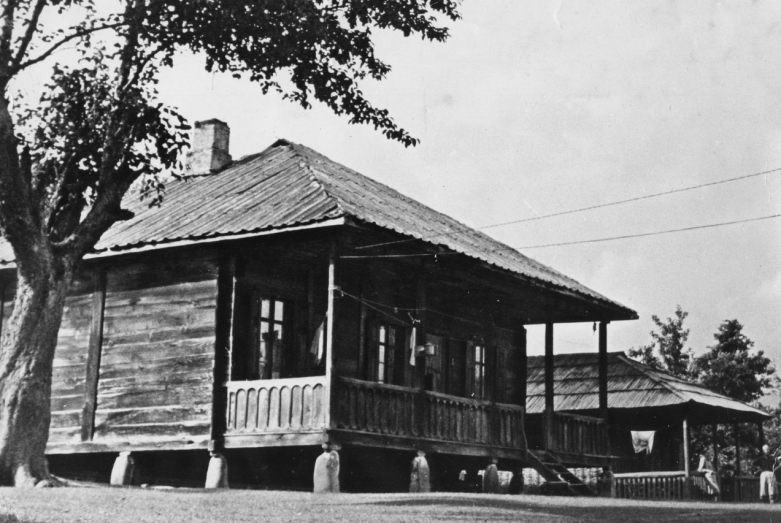
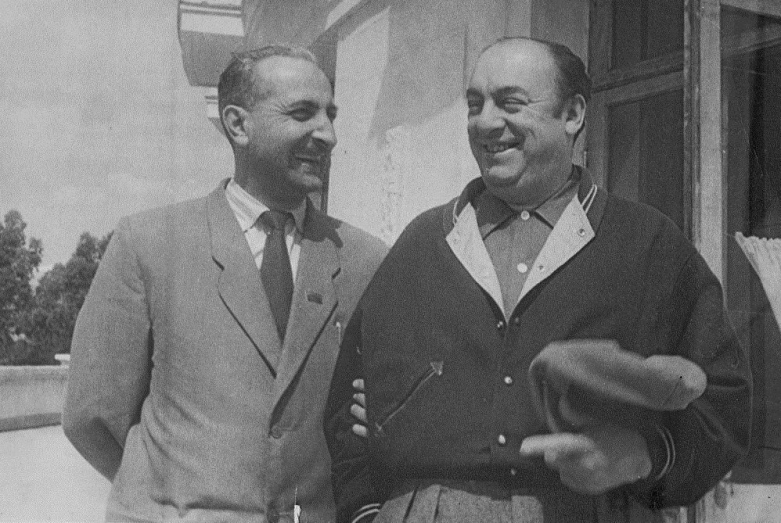
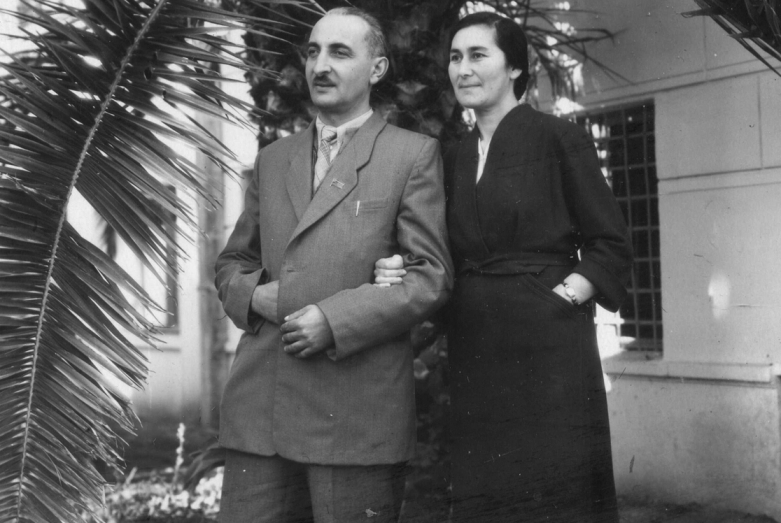
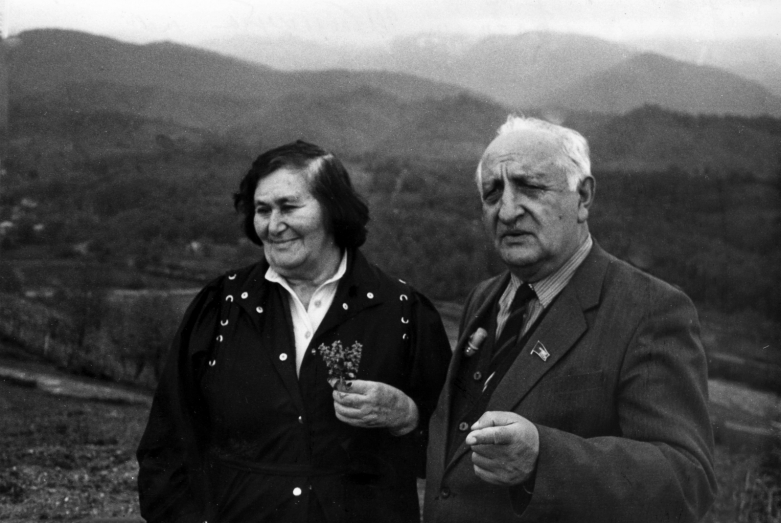
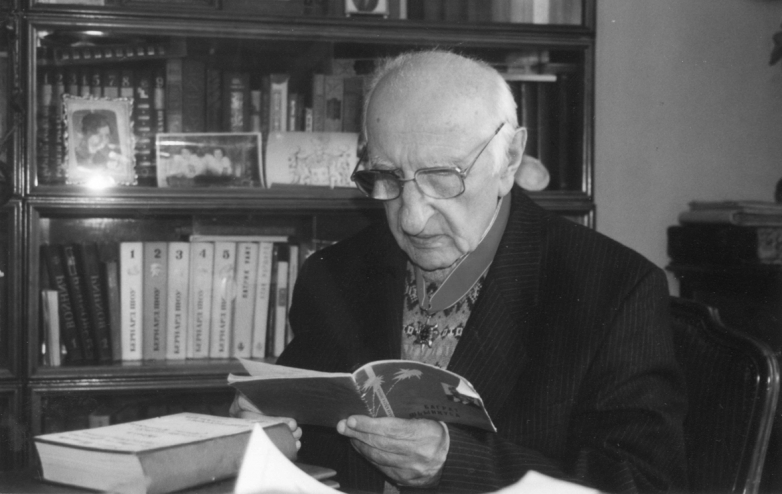
to login or register.